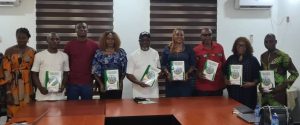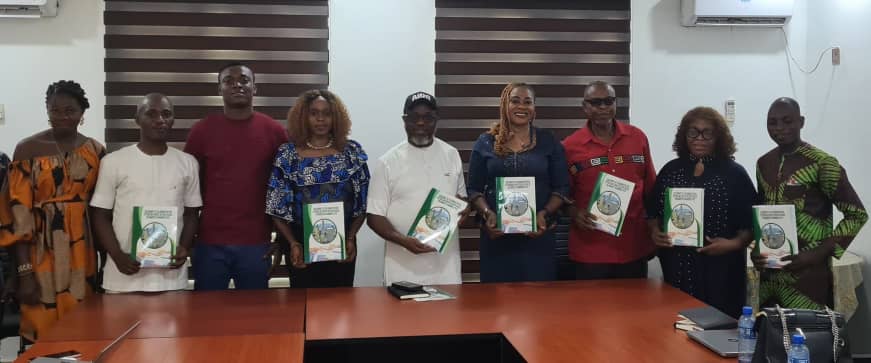Lawrence Nwimo, Awka
Members of Tax Justice and Governance Platform, (TJ&GP) have urged Anambra State Government to give greater attention to markets to boost tax compliance in the state.
The group said informal sector, particularly markets, remain significant contributors to the state’s economy, and as such, it is critical to address the needs of the markets in order to inspire voluntary tax compliance.
The group, which consists of civil society advocates, media practitioners, traders and artisans, made the call during an advocacy visit to the Chairman, Anambra Internal Revenue Service, (AiRS), Dr Greg Ezeilo, under its Tax for Service Project, implemented in collaboration with Civil Society Legislative Advocacy Centre, (CISLAC) and funded by Oxfam Nigeria.
Speaking during the meeting, SIDEC Executive Director, Ugochi Ehiahuruike, extolled the transformative initiatives of the Anambra Internal Revenue Service, (AiRS), which she said has resulted in progressive growth in the state’s internally generated revenue, (IGR).
She stated that the purpose of the meeting was, among other things, to present the findings of their research conducted across 21 major markets aimed at identifying the needs of markets and explore potential governmental interventions.
Speaking further, Ugochi noted that Tax for Service project is designed to lend a boost to the revenue drive of Anambra State.
“We are currently hosting a radio programme on ABS and Authority FM to educate the masses and we are receiving lots of calls showing that the people are interested. These are the things that we are doing to complement what AiRS is already doing.”
“When we started this campaign, monthly revenue generation was around 2.8 to 3.3 billion naira. It is now revolving around 4.8 to 5 billion monthly. In January 2025, the state generated 4.6 billion naira. This is a good development that needs to be consolidated.
“We appreciate the giant strides of the state government and the efforts to secure the state. The Governor is working so hard to ensure that he protects the lives of his people. That’s also a primary mandate. But our markets also need attention.”
Contributing, a member of Tax Justice and Governance Platform, Ify Unachukwu, read the recommendations from the study carried out in the 21 selected markets.
“One of the things we are recommending is critical and strategic media awareness creation. It’s very important. We know you have a jingle running, but there is need to re-strategise.
“Our other recommendation is about your USSD system. You need to redesign it because from our radio programme, people are really interested in it and we need to disseminate information about it in our local language to aid general understanding. Same goes for notification for payment.
“We also recommend fully-digitized revenue collection system and seamless collaboration and coordination between MDAs and tiers of government.”
Responding, Dr. Ezeilo expressed gratitude to SIDEC and TG&GP for their efforts in compiling a report that will serve as a reference document for future endeavors. He emphasised the importance of transitioning from cash-based revenue collection to technology-driven methods, stating that anyone resisting this change is either a criminal or not working in the best interests of the state.
In the transportation sector, Dr. Ezeilo highlighted the successful implementation of a QR code system for tricyclists, which provides real-time information on payments, wallet balances, and payment due dates. He said the technology will also enable tracking of tricycles in case of theft. He said the state plans to deploy similar technology in markets, utilising smart hubs equipped with computers, printers, and solar panels to facilitate enumeration and tax payment processes.
“We are going to the markets next week Tuesday to begin enumeration. And then we are deploying similar technology. As soon as they come to your shop, they punch all the data about your wares. And then we make an estimate of what your revenue and turnover are and you get a demand note for tax payment.
“We will also get the local governments not to collect cash because such will be criminalised. So, we now have e-ticketing and all the people now carrying sticks on the main road will become e-ticket agents. So, we have a bulk buyer who sells the ticket (tokens) through POS or mobile transfer,” he said.


